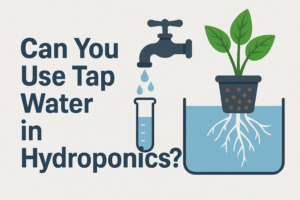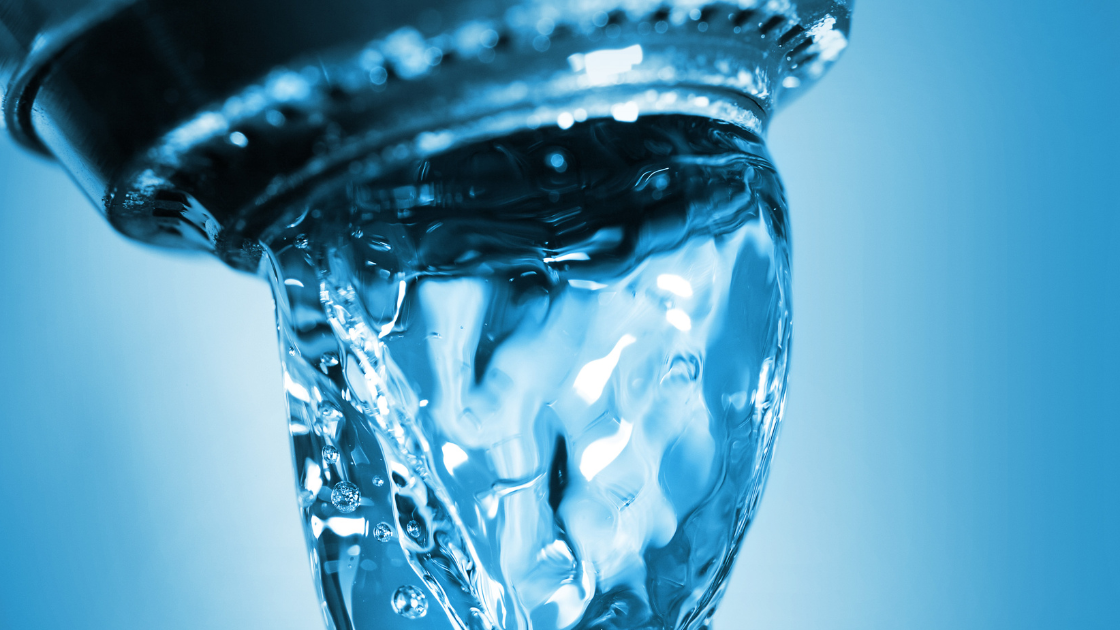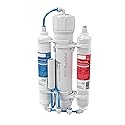Can you use tap water in your hydroponic system …Short answer? Yes, you can use tap water in your hydroponic system — but whether you should depends on what’s actually in your water.
In hydroponics, water is the lifeline. It’s not just keeping your plants alive — it’s also delivering nutrients, oxygen, and pH balance. If your water quality is off, everything else in your system will be too.
Here’s what you need to know about using tap water in hydroponics, what problems it can cause, and how to make it plant-friendly if you want to stick with it.
What’s Really in Tap Water?
Tap water might look clean, but it usually comes with a list of extras your plants didn’t ask for. Depending on your source — city, well, or rural supply — here’s what might be in there:
- Chlorine – Common disinfectant. Safe for humans, not great for plant roots or beneficial microbes.
- Chloramine – A more stable form of chlorine. Won’t evaporate on its own, and harder to remove.
- Hardness minerals – Mainly calcium and magnesium. Plants need these, but too much can cause salt buildup and nutrient imbalances.
- Contaminants – Things like iron, fluoride, sodium, or even heavy metals, depending on your pipes and region.
Not every tap is the same. Some areas have relatively soft, clean water. Others… not so much.
Problems Tap Water Can Cause in Hydroponics
If you use tap water straight from the faucet without testing or adjusting, you could run into a few common issues:
❌ Chlorine/Chloramine Damage
These chemicals can damage root systems and kill off beneficial microbes if you’re using compost teas or biological additives.
❌ High TDS or EC
If your tap water already has a lot of dissolved solids, it’s like starting your nutrient mix on hard mode. Your plants might get too much of one mineral and not enough of another — leading to nutrient lockout.
❌ Salt Buildup
Hard water often contains excess calcium and magnesium. Over time, this can create crusty salt deposits that mess with your system and your plant’s uptake.
❌ pH Instability
Tap water, especially hard water, tends to have a high pH — usually around 7.5 to 8+. That’s too alkaline for hydroponics, where the sweet spot is 5.5 to 6.5.
🌱 Tip: If your plants are yellowing or curling for no obvious reason, test your water. It could be the silent saboteur.

When Is Tap Water Okay to Use?
Tap water isn’t a deal-breaker — just know what you’re dealing with. You can usually use it if:
- Your local water is relatively soft and clean (check your city’s water quality report or test it yourself).
- You’re growing hardy plants like leafy greens, herbs, or non-fruiting crops.
- You’re testing and adjusting regularly — especially pH and PPM levels.
Bottom line: if your tap water plays nice, there’s no reason not to use it.
How to Make Tap Water Hydroponic-Friendly
If you’re set on using tap water, here’s how to make it work:
✅ Let Chlorine Evaporate
Letting water sit out in an open container for 24–48 hours can remove chlorine (but not chloramine).
✅ Use a Carbon Filter
An inline carbon filter or water conditioner can help remove chloramine, chlorine, and some trace contaminants.
✅ Test and Adjust pH
Use a pH meter or test drops to check your water before adding nutrients. Use pH up or down to bring it into the 5.5–6.5 range.
✅ Check TDS/EC
Use a TDS or EC meter to measure the total dissolved solids. If your base water is already over 150–200 ppm, you may want to dilute it or switch sources.
Alternatives to Tap Water
If your tap water fails the test, here are other options:
My Top Pick | 6,100+ Reviews |
- Reverse Osmosis (RO) Water
– Strips out nearly all minerals and contaminants. Gives you complete control over nutrients. - Distilled Water
– Similar to RO. Great for small systems, but can get expensive over time. - Rainwater
– Natural and free. Just be sure to filter it before using, and avoid collection in heavily polluted areas.
Final Thoughts
So — can you use tap water in hydroponics? Yes, if you’re smart about it.
Test it, treat it, and monitor your system closely. Tap water can work just fine for many growers — but clean, stable water means fewer plant issues and better yields.
When in doubt, test before you mix.









